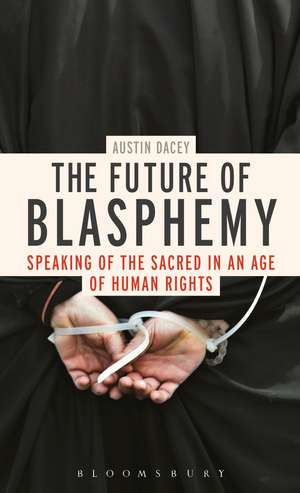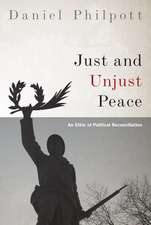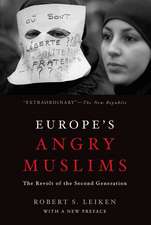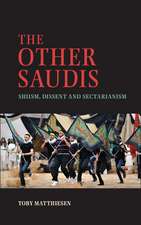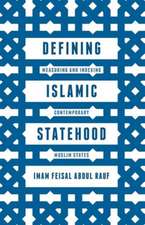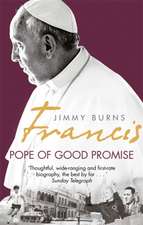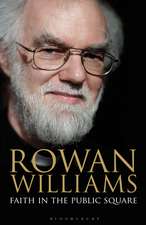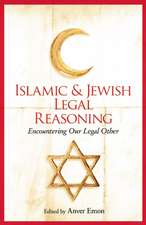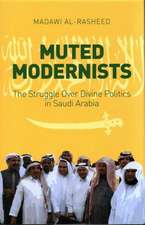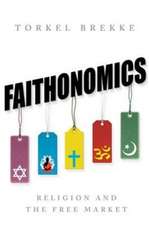The Future of Blasphemy: Speaking of the Sacred in an Age of Human Rights
Autor Dr Austin Daceyen Limba Engleză Hardback – 25 ian 2012
In the days of Moses, blasphemy was the mortal offence of failing to respect the divine. In an age of human rights, blasphemy is understood as a failure to respect persons, as insult, defamation, or "advocacy of religious hatred." The criminalisation of this personal blasphemy has been advanced at the United Nations and upheld by the European Court of Human Rights, which has asserted a universal "right to respect for religious feelings."
The Future of Blasphemy turns respect on its head. Respect demands that we grant each other equal standing in the moral community, not that we never offend. Politically, respect for citizens requires a public discourse that is open to all viewpoints. Going beyond the question of free speech versus religion, The Future of Blasphemy defends an ethical model of blasphemy. Controversies surrounding sacrilege are contests over what counts as sacred, disagreements about what has central, inviolable, and incommensurable value. In such public contestation of the sacred, each of us-secular and religious alike-has equal right to speak on its behalf.
Preț: 483.30 lei
Preț vechi: 809.75 lei
-40% Nou
Puncte Express: 725
Preț estimativ în valută:
92.48€ • 96.81$ • 76.52£
92.48€ • 96.81$ • 76.52£
Carte tipărită la comandă
Livrare economică 07-21 aprilie
Preluare comenzi: 021 569.72.76
Specificații
ISBN-13: 9781441107374
ISBN-10: 1441107371
Pagini: 208
Dimensiuni: 129 x 198 x 18 mm
Greutate: 0.36 kg
Editura: Bloomsbury Publishing
Colecția Continuum
Locul publicării:London, United Kingdom
ISBN-10: 1441107371
Pagini: 208
Dimensiuni: 129 x 198 x 18 mm
Greutate: 0.36 kg
Editura: Bloomsbury Publishing
Colecția Continuum
Locul publicării:London, United Kingdom
Caracteristici
Considers the value of equal respect for persons and freedom of conscience and religion.
Notă biografică
Austin Dacey is a Representative to the United Nations, International Humanist and Ethical Union, and Instructor of Humanities at Polytechnic Institute of New York University, USA.
Cuprins
1. Combating the Defamation of Religions \ 2. Sacrilege \ 3. Respect \ 4. Rights \ 5. Idols \ 6. Postcript: On Moral Luck and Cattle Riots \ Bibliography \ Index
Recenzii
'The world of blasphemy and religious conflict studies is in something of a constant whirl. Not only are contemporary situations constantly changing but the implications from them so often make us revisit the historical account of why blasphemy endures and persists into the modern world. With impeccable scholarship, wit, and wisdom, Austin Dacey's excellent The Future of Blasphemy gives us indispensible insight into both of these processes. Without such observation and knowledge, our attempts to think about and resolve such conflicts are potentially doomed to failure.'
'Austin Dacey's approach to this important international issue is shaped by the unique constitutional environment of United States, a secular republic anchored in a multi-confessional society. Laws against blasphemy and "religious hatred" are inherently discriminatory because they give traditional faith communities a legal remedy that is not available to religious minorities and secularists when their sense of the sacred is violated. Thus, Dacey does not seek to abolish the concept of blasphemy altogether, but rather to secularize it.'
'Not long ago, few people would have known what blasphemy meant, and fewer would have cared. Today, however, it is the subject of high-power conferences, including a few sponsored by the United Nations. Worse still, blasphemy is cited as justification for mass arrests, torture of dissidents, and political assassinations. Suddenly, a medieval concept, using political correctness as a vehicle, has forced its way into the mainstream of international life provoking debate and discord. In his new book The Future of Blasphemy, Austin Dacey, one of the most daring of the new generation of American philosophers, takes us on a guided tour of this labyrinthine issue. The result is a great read, instructive and enjoyable at the same time. Though focused on depicting the future of blasphemy, the book also offers a fascinating account of the beast's birth and maturation over the past three millennia. Since the blasphemy has religious, cultural, historic, political and racial tentacles, Dacey's book should be of interest far beyond the theological dimension of the issue.'
'If universally adopted and practiced, Dacey's proposed No Compliance Principle would force those offended, or pretending to be offended, by blasphemy to fight back with art, literature and argument rather than bombs and daggers...'-The New York Post
A well-researched piece of scholarship on a controversial subject, Dacey's book is a major contribution to an important debate.
Listed in the 'new titles just published' section of the Church Times.
'Austin Dacey's approach to this important international issue is shaped by the unique constitutional environment of United States, a secular republic anchored in a multi-confessional society. Laws against blasphemy and "religious hatred" are inherently discriminatory because they give traditional faith communities a legal remedy that is not available to religious minorities and secularists when their sense of the sacred is violated. Thus, Dacey does not seek to abolish the concept of blasphemy altogether, but rather to secularize it.'
'Not long ago, few people would have known what blasphemy meant, and fewer would have cared. Today, however, it is the subject of high-power conferences, including a few sponsored by the United Nations. Worse still, blasphemy is cited as justification for mass arrests, torture of dissidents, and political assassinations. Suddenly, a medieval concept, using political correctness as a vehicle, has forced its way into the mainstream of international life provoking debate and discord. In his new book The Future of Blasphemy, Austin Dacey, one of the most daring of the new generation of American philosophers, takes us on a guided tour of this labyrinthine issue. The result is a great read, instructive and enjoyable at the same time. Though focused on depicting the future of blasphemy, the book also offers a fascinating account of the beast's birth and maturation over the past three millennia. Since the blasphemy has religious, cultural, historic, political and racial tentacles, Dacey's book should be of interest far beyond the theological dimension of the issue.'
'If universally adopted and practiced, Dacey's proposed No Compliance Principle would force those offended, or pretending to be offended, by blasphemy to fight back with art, literature and argument rather than bombs and daggers...'-The New York Post
A well-researched piece of scholarship on a controversial subject, Dacey's book is a major contribution to an important debate.
Listed in the 'new titles just published' section of the Church Times.
